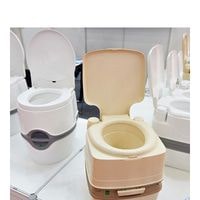What states allow composting toilets. Composting toilets are used both in private and commercial applications all throughout the country.
In states such as North Carolina however, codes for composting toilets may not exist so you’re going to have to seek permission from local government by contacting your municipal wastewater works or the state’s department of certification first.
In other states though (such as New York), legislation is much more decisive when it comes to composting toilets allowing you to freely buy and install the fixture.
However, it is best and most vital not just to look at laws or codes that exist or don’t but also to consult with reliable contractors before venturing into building a toilet of any kind because it can get tricky when dealing with local rules and regulations.
What states allow composting toilets

There are some states where composting toilets are legal.
In these states, homeowners who have installed their waste systems correctly have not had any troubles with any of the state’s environmental protection agencies or other governing bodies.
However, there are many states where the composting toilet movement is not always authorized, due to the fact that those authorities think that a composting toilet can do more harm than good if people don’t properly install and maintain them.
The states Arkansas, Colorado, Florida, Idaho, Washington, Texas, and Montana are among the states.
Now allow composting toilets to be installed on properties instead of traditional sewer systems or septic tanks.
When you purchase a composting toilet that is certified by the National Sanitation Foundation (NSF), you ensure that the fixture is approved and compliant with local regulations
Those states with stricter codes
State laws, let alone local laws, can be confusing. In some states, building a home or living off the grid is actually illegal. Before installing any type of composting toilet.
It’s wise to check with your state and local building codes because each state has its own regulations and rules.
As well as Nevada, Pennsylvania, Indiana, New York, and New Jersey, which differ in what/where/when they can install composting toilets.
Make sure to check for any changes in this regard if you recently moved. Arizona, Kansas, Mississippi, Virginia, and Alabama have stricter regulations than other states, according to Primal Survivor.
Some circumstances, including natural disasters, force people to live off the grid more than others, but the penalties are stiff regardless, so it’s best not to take unnecessary risks, especially if you plan to live large during your small disaster.
The benefits of composting toilets

The average person flushes 88 gallons of water each day and the average family of four can save about 13,000 gallons each year by updating inefficient toilets.
Green Living Ideas notes that a composting toilet can save more than 6,500 gallons of water annually.
Composting toilets are often preferred for their water- and energy-saving abilities as well as their low cost and maintenance.
They can eliminate the need for tying into the main sewer line or installing a septic system. For off-grid farmers, the waste can be used as a nutrient-rich fertilizer.
According to the U.S Environmental Protection Agency, composting your own waste is much better for your environment and yard than taking it directly to landfills or disposing of it properly when you’re on the go because it happens naturally all around us with some simple “crumb planning”.
Where do you empty a composting toilet?
Composting toilets use a constant composting cycle in which human waste is not thrown away at all, but instead, dehydrates with aerobic digestion.
The compost may be used as fertilizer, but this depends on local or even state regulations.
There’s typically a “soil-less” substrate that sits at the bottom of the toilet and can be removed once or twice a month (depending on things like usage and overall results).
How much does a composting toilet system cost?
Commercial composting toilets can cost upwards of $5000. However, a toilet converted to become a composting one might cost between $500 – $1000 depending on the type of structure in which it is installed.
Conclusion
While most states allow composting toilets to be installed, you will still need to follow the local regulations and in some cases, they can be fairly strict.
Additionally, many counties or towns have additional rules and restrictions pertaining to composting toilets so it might be a good idea to talk with your local authorities.
What states allow composting toilets
Related Guides
